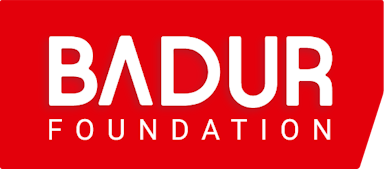Since 2012, the Csepp Afternoon School run by Csodaműhely Association has provided vital support to disadvantaged school children, helping them to successfully pursue their studies and fulfil their abilities. Volunteer mentors have provided individual tutoring, as well as engaging with the families and teachers creating a much needed bridge between the two.
Over the years the Association’s work has become increasingly complex and and in 2016 they started an early development pedagogy-based programme for young mothers and their toddlers. In 2017, they launched a Civil Network to establish channels of communication and platforms of cooperation between different stakeholders including residents, teachers, social workers and municipality workers. With the Badur Foundation’s grant, they started a new stream of activities that focus on the education, training and complex skills development of adults in order to foster their labour market integration.
The level of education of the residents living in the disadvantaged segment of Csobánka is significantly lower than the national average, and - as a consequence of this fact - there are less favourable unemployment indicators in the settlement than the national average. Half of the residents only completed primary school education. Only one in three people has a regular job, and the rest either live on seasonal jobs or are long-term unemployed.
National programmes providing free adult education exist but can only be accessed through a maze of bureaucracy. This is a significant challenge for people with low qualifications. Disadvantaged adults can find it difficult to navigate formal administration because some of them are functionally illiterate, so they can have trouble understanding and filling out registration forms. As candidates often lack basic skills, frequently they cannot even solve aptitude tests, so they are not accepted to state-funded vocational trainings.
Obtaining the right qualification is the first, but not last step. The development of personal and social skills is also prerequisite for successful integration. Better communication, improved conflict resolution skills and healthy self-esteem levels are all needed for people to attain and keep the job they wish. Crucially, an inclusive working environment that is open and conducive to integrating disadvantaged individuals is also needed to ensure success in the long run. Thus, the adult education programme in Csobánka provided a complex solution to the above set of problems by cooperating with existing state programmes, providing additional mentoring, organising targeted skills development training and having a proactive approach to finding potential employers.
During the pilot year (October 2018 – September 2019) supported by Badur Foundation, the Association provided education and training opportunities for twenty-seven people. Twenty-five people were enrolled in vocational education to complete state-funded shop clerk training. Before that, all of them had been permanently excluded from the primary labour market for years. During the training programme, participants received ongoing mentoring support by staff and volunteers of the Association. In addition, a group of peer mentors emerged spontaneously who provided additional peer-to-peer support. This lead to success as all twenty-five participants passed the final exam with good results.
“They [the mentors] helped in everything, they stood by us in everything.”
After the training, the Association provided job search support and in the short term, 50% of participants found a job on the primary labour market. The programme also had additional benefits, beyond an immediate change in participants’ employment status, based on the outcome assessment of the programme:
Participants gained stronger social competences, which increased confidence.
Participants became role models for younger generations.
Participants’ professional qualification is an investment for their future.
“I can encourage them [my children] to learn by learning as well.”
Besides vocational training, the programme provided an opportunity to finish primary school education. The lessons were held by volunteers in a flexible manner and participants appreciated education that fit their working hours, the commitment of volunteers, and the fact that they could approach volunteer mentors with problems beyond curriculum issues. Two adults finished this programme – each completing a school year. The example of these successful students was very motivating for the community, proving that it is worth investing in learning.
Based on the positive experience of the pilot and the successful fundraising efforts of the Association, the Adult Education Programme will be sustained to provide further opportunities for vocational training and primary education. The Foundation will continue to support the second year of the operation, this time by funding the specific position of a community assistant so that the programme can be embedded more profoundly into the local community. To read more about the continuation click here.
Photo credit:
Thumbnail: Hometown Beauty, Flickr Creative Commons
Banner: GoToVan, Flickr Creative Commons






